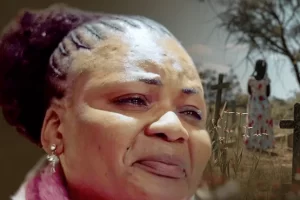 A year after the speaker of the Ugandan parliament, Rebecca Kadaga, promised her countryfolk laws to punish homosexuality as a Christmas present, she has delivered. But she did not just serve Ugandans the heads of homosexuals on a silver platter; for added spice, another bill that passed through parliament in Kampala last week threw in a ban on women wearing miniskirts, which are said to distract the great men trying to build the nation.
A year after the speaker of the Ugandan parliament, Rebecca Kadaga, promised her countryfolk laws to punish homosexuality as a Christmas present, she has delivered. But she did not just serve Ugandans the heads of homosexuals on a silver platter; for added spice, another bill that passed through parliament in Kampala last week threw in a ban on women wearing miniskirts, which are said to distract the great men trying to build the nation.News that parliament had passed laws strengthening the punishment for homosexual acts to include life imprisonment in some cases and making it a crime not to report gay people was bad enough. The separate ban on women looking even remotely sexy sounded like a sick joke.
The anti-homosexuality bill had been dangled over the heads of gay Ugandans like a hangman’s noose for five years. An estimated 90% of people supported the bill, which condemns gay people to life in jail for merely touching.
Still, it is hard to see how President Yoweri Museveni, who has managed to stay in power for 27 years, partly because of his ability to keep western powers pouring dollars into Uganda despite the regressive attitudes evident in the country, can dare to toe the controversial line on homosexuality.
Initially Museveni supported the anti-homosexuality bill, but then he backed down under international pressure, saying gay people should just be ignored. This looked like proof that the bill would never see the light of day in a parliament that can pass no law without the stamp of the president. Britain and the US, the biggest donors, strongly condemned the bill. Although similar laws have been passed in other African countries, such as Nigeria, it seemed that Museveni would let it rest.
The anti-pornography bill, instigated by Simon Lokodo, minister of ethics, was laughed off when it was re-tabled early this year, with many Ugandans playfully tweeting #Savetheminiskirt.
But as the dust settles over the two laws, hurriedly debated and passed, it is painful to come face to face with the reality that I live in a country where soon it will be OK for a stranger to measure my hemline and call the cops if my knees show. And where those who do not promptly report gay people to the authorities risk going to jail.
Not that any of this is new. At the entrance of the Ugandan parliament, women are already subjected to the measurement of their hemlines and hip width by police who have been ordered not to let “indecent” women enter. The story of Uganda’s homophobic laws and attitudes is an old one. Homophobic media, parents who have banished their gay children, and gay people attacked, raped and slaughtered are all part of the package.
The objectification of women, sanctioned by ministers at the highest level by celebrating men who rape “indecent” women, the raped woman whose police files disappear … these are not appalling one-off violations: they are business as usual. All the anti-homosexuality and anti-pornography bills do is to make official the persecution of minorities and those who do not conform. Clare Byaruhanga, a Ugandan gay rightsactivist, once told me that the biggest problem with the anti-homosexuality bill was that the fact of it having been tabled meant that many people believed it was already law. Homosexuals were already being subjected to death and torture, just not necessarily by the authorities.
Patriarchy and homophobia are deeply rooted in the psyche of many Ugandans. They are fortified by cultural and religious notions about sexuality and gender identity. Women are at the bottom of society’s hierarchy, even lower than their male children, who are given the power to make decisions over women’s lives. Homosexuals, whose sexuality and gender do not conform, are outcasts of society who are left to fend for themselves.
Nevertheless, the gender and human rights movements in Uganda have come a long way. The courts have twice held in favour of the rights of homosexuals. Numerous decisions have upheld the equal rights of women in and outside the family.
Many of Uganda’s parliamentarians are beneficiaries of the progress in the human rights realm – from the rights of women to those of the disabled and ethnic minorities. Kadaga, in particular, has broken every glass ceiling of her generation to become one of the continent’s most affluent women. Less than two decades ago, as a childless and unmarried woman, she would have been an outcast – much like gay people and women wearing miniskirts today.
But Ugandan leaders are not too eager to give others the same chance. It is these same leaders who frustrate community projects that they feel will not bring in the votes, who live in mansions while the populace do not have blankets, and who are suffering from obesity when half the country’s children are malnourished.
Not that any of this matters to them now that – under the auspices of Museveni – they are enjoying their long-awaited reward for “saving” the country. The important thing is that, when the time comes, the malnourished, desperate populace will be so pumped up by the promise of the crucifixion of gay people and immoral women that they will forget the false promises of the past 27 years and tick the right name on the ballot paper.




